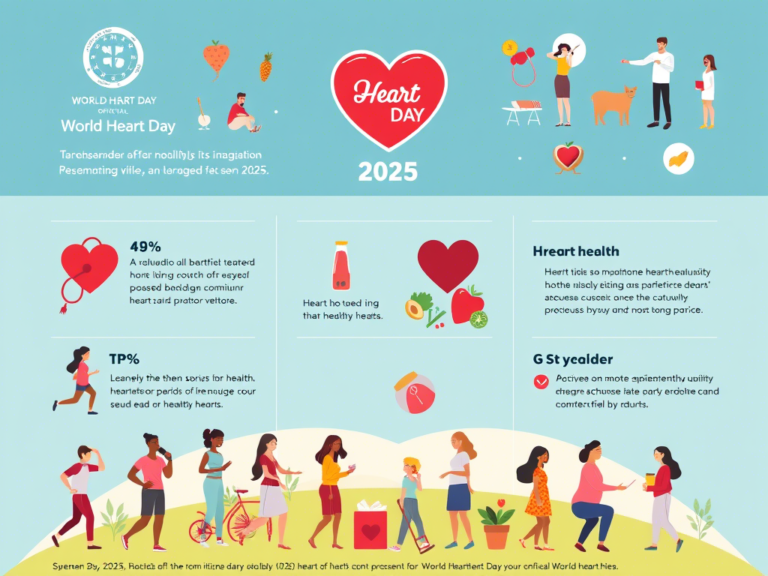What is Depression?
Depression is a complex mental health disorder characterized by persistent feelings of sadness, hopelessness, and a marked lack of interest in activities that were once enjoyable. This condition can significantly affect an individual’s daily life, impairing their ability to function at work, in social situations, or at home. It manifests in various forms, each exhibiting unique features, the most common being Major Depressive Disorder (MDD) and Persistent Depressive Disorder (PDD), among others.
Major Depressive Disorder involves episodes of severe depression lasting for at least two weeks, during which individuals may experience a profound decline in their emotional state and motivation. In contrast, Persistent Depressive Disorder, often referred to as dysthymia, is characterized by a chronic form of depression that lasts for years, where individuals may experience recurring bouts of MDD.
Other types of depression include Bipolar Disorder, where mood swings between manic highs and depressive lows occur, and Seasonal Affective Disorder (SAD), which typically arises during specific seasons due to reduced sunlight. Each type varies in terms of symptoms, duration, and triggers, making understanding depression essential for effective diagnosis and treatment.
Statistics reveal that depression is a widespread mental health issue, affecting millions globally. According to the World Health Organization, over 264 million people worldwide struggle with depression, encompassing various demographics, including different ages, races, and genders. Alarmingly, the prevalence of this condition highlights the urgent need for greater awareness and understanding of mental health, emphasizing the importance of seeking help and support. By recognizing the characteristics and impact of depression, individuals can take significant steps towards understanding and addressing their mental health needs.
Causes of Depression
Depression is a multifaceted mental health condition influenced by an interplay of biological, psychological, and environmental factors. Understanding these causes is essential in fostering empathy and support for those affected by this pervasive issue. At the biological level, genetics plays a significant role. Studies have shown that individuals with a family history of depression are at a heightened risk of developing the condition themselves. Specific genes associated with neurotransmitter systems can impact how the brain processes emotions and stress, thereby influencing susceptibility to depression.
Moreover, the chemistry of the brain drastically affects mood regulation. Imbalances in neurotransmitters such as serotonin, dopamine, and norepinephrine have been linked to depressive symptoms. These chemical messengers are crucial for communication between neurons, and their dysregulation may contribute to the mood disturbances characteristic of depression.
Psychological factors also play a critical role in the development of depression. Traumatic experiences, such as loss, abuse, or prolonged stress, can leave deep emotional scars that significantly affect mental health. Cognitive patterns, such as negative thinking styles or low self-esteem, may further exacerbate feelings of hopelessness and contribute to the onset of depressive disorders.
Environmental elements should not be overlooked; life circumstances, including socioeconomic factors, relationship issues, and lack of support systems can all trigger or intensify depressive symptoms. Chronic stressors, akin to job loss or financial strain, can immerse individuals in a cycle of despair that feels insurmountable. Understanding these varied causes of depression highlights the complexity of mental health and underscores the necessity for a tailored, compassionate approach to treatment and recovery endeavors.
Symptoms of Depression
Depression manifests through a variety of symptoms that can significantly affect an individual’s emotional and physical well-being. Recognizing these symptoms is crucial for early intervention and treatment, which can lead to more effective recovery. Emotional symptoms often include persistent sadness, which may not have a clear cause and can feel overwhelming. Additionally, individuals might experience feelings of hopelessness, irritability, and a marked loss of interest in previously enjoyed activities. This emotional distress can lead to social withdrawal, resulting in loneliness and isolation.
Another common symptom is difficulty concentrating or making decisions, which can impact both personal and professional aspects of life. Individuals may find that their self-esteem suffers, sometimes leading to self-criticism and feelings of worthlessness. In some cases, thoughts of death or self-harm may emerge, highlighting the severity of the illness and the need for professional support.
Physical symptoms are equally important and often manifest alongside the emotional aspects of depression. Fatigue is a prevalent symptom, characterized by an overwhelming sense of tiredness that does not subside with rest. This can contribute to a decreased ability to engage in daily activities. Sleep disturbances are also common, with individuals experiencing insomnia, oversleeping, or disrupted sleep patterns. Changes in appetite can occur, resulting in significant weight loss or gain, as many might either lose interest in food or indulge in comfort eating.
Other physical signs can include unexplained aches and pains, which often do not respond well to treatment and can add to the overall sense of malaise. Acknowledging these symptoms can be the first step toward recognizing depression in oneself or others, emphasizing the importance of seeking help and support.
Global Statistics on Depression
Depression remains one of the most significant mental health issues affecting individuals across the globe. According to the World Health Organization (WHO), approximately 280 million people suffer from depression worldwide, reflecting the alarming prevalence of this condition. This staggering figure illustrates how depression impacts various demographics, including age groups and genders, emphasizing the importance of addressing this mental health crisis.
When evaluating the effects of depression across different age groups, research indicates that young adults, particularly those aged 18 to 25, are among the most affected. Statistics reveal that nearly 15% of this demographic experience depression, contributing to a growing need for targeted interventions. In contrast, older adults, while generally less reported, are also vulnerable; the prevalence in this group can be exacerbated by factors such as chronic illness, isolation, and cognitive decline.
The gender disparity in depression rates is another crucial statistic to consider. Studies show that women are nearly twice as likely to be diagnosed with depression compared to men, a pattern that may be influenced by hormonal differences, societal roles, and the stress of caregiving responsibilities. These insights underline the necessity for gender-sensitive approaches in mental health care, ensuring that the unique experiences of both men and women are acknowledged and addressed.
Geographically, depression does not discriminate; it affects individuals in both developed and developing nations. However, the expression of depression and access to treatment can vary significantly. For instance, low- and middle-income countries may face greater challenges in addressing mental health due to stigma and limited resources. This disparity highlights the urgent need for global initiatives aimed at improving mental health awareness and treatment availability across regions.
Time Range of Diagnosis and Treatment
The timeframe for diagnosing and treating depression can vary significantly based on individual circumstances. Generally, the process begins with the recognition of symptoms, which often leads individuals to seek professional help. Early intervention in cases of depression is crucial, as it can greatly enhance the effectiveness of treatment and improve overall outcomes. Typical symptoms that may prompt an individual to consult a healthcare provider include persistent feelings of sadness, loss of interest in previously enjoyable activities, and changes in appetite or sleep patterns.
After seeking help, an assessment by a qualified mental health professional typically occurs within a few weeks. This assessment may involve a detailed interview, standardized questionnaires, and discussions regarding the individual’s medical history. Early identification is key; research indicates that starting treatment soon after diagnosis can lead to more favorable results, minimizing the duration of depressive episodes.
Once diagnosed, treatment for depression usually consists of therapy, medication, or a combination of both. Cognitive-behavioral therapy (CBT) is one approach that has shown significant efficacy. Depending on the severity of depression, initial therapy sessions may start as frequently as once a week to monitor progress closely. Medications, such as antidepressants, may require time to reach their full effect, usually taking several weeks to a few months for maximum efficacy. Therefore, patience and adherence to the treatment plan are essential for individuals undergoing recovery.
The overall timeline from diagnosis to improvement can vary from a few months to several years, depending on multiple factors like the individual’s support system, adherence to treatment, and any underlying medical conditions. It is essential for those experiencing depressive symptoms to seek help promptly, as this is a vital step on the pathway to recovery.
Treatment Options for Depression
Treating depression often requires a multifaceted approach that tailors to the unique needs of each individual. The primary options for managing depression include psychotherapy, medications, and lifestyle changes, each playing a vital role in recovery.
Psychotherapy, often referred to as talk therapy, is frequently highlighted as a cornerstone of treatment for depression. Cognitive-Behavioral Therapy (CBT) is particularly effective, focusing on identifying and altering negative thought patterns that contribute to a person’s emotional distress. Through structured sessions, individuals learn coping mechanisms, develop problem-solving skills, and gain insights into their behaviors, ultimately promoting healthier emotional responses.
In addition to therapy, medications, particularly antidepressants, are commonly prescribed to manage the symptoms of depression. These medications can help restore the balance of neurotransmitters in the brain, essential for regulating mood. Different classes of antidepressants, such as selective serotonin reuptake inhibitors (SSRIs) and serotonin-norepinephrine reuptake inhibitors (SNRIs), may be considered based on individual symptoms and medical history. It is crucial that any medication regimen is closely monitored by a healthcare professional, ensuring efficacy while mitigating potential side effects.
Lifestyle modifications also play a significant role in fighting depression. Regular physical activity has been shown to enhance mood and decrease anxiety, acting as a natural antidepressant. Nutrition, too, holds importance; consuming a balanced diet rich in whole foods, vitamins, and omega-3 fatty acids can substantially influence mental well-being. Mindfulness practices, such as yoga and meditation, further contribute to emotional stability, promoting relaxation and stress reduction.
Ultimately, it is essential for individuals experiencing depression to work collaboratively with healthcare professionals. By exploring various treatment options, including psychotherapy, medication, and lifestyle changes, a personalized plan for recovery can be developed, paving the way for improved mental health and quality of life.
A Message of Hope
Depression, while a formidable challenge, is not insurmountable. Many individuals grappling with this condition have found their way to recovery, often sharing their journeys filled with resilience, determination, and eventual triumph. These personal success stories serve not only as testaments to the possibilities of overcoming depression but also highlight the importance of hope as a beacon in the darkest of times.
For instance, consider the story of a young woman who, after struggling with debilitating depression for years, sought professional help. Initially resistant, she gradually engaged with therapy, discovering coping mechanisms and emotional resilience she never thought she possessed. Through consistent effort and support, she transitioned from feeling incapacitated by her feelings to embracing life’s joys again. Her journey illustrates that recovery is indeed possible, reinforcing the idea that individuals are capable of change and improvement.
Another inspiring narrative comes from a middle-aged man who felt utterly defeated by his mental health struggles. His decision to reach out not only to a therapist but also to a support group proved transformative. Within this community, he found understanding, shared experiences, and encouragement. This collective strength fostered a renewed optimism for his forthcoming endeavors, illuminating the path to recovery. Such stories remind us that no one is alone in this fight; support systems and professionals can guide individuals through tough times.
Hope is a crucial element that plays a pivotal role in navigating the journey through depression. It acts as a motivation to seek help, embodying the realization that brighter days are ahead. The essential message to hold on to is that recovery is not just a distant dream but an achievable reality. As individuals face their battles, it is critical to remember that resilience and support can lead to healing and happiness.




